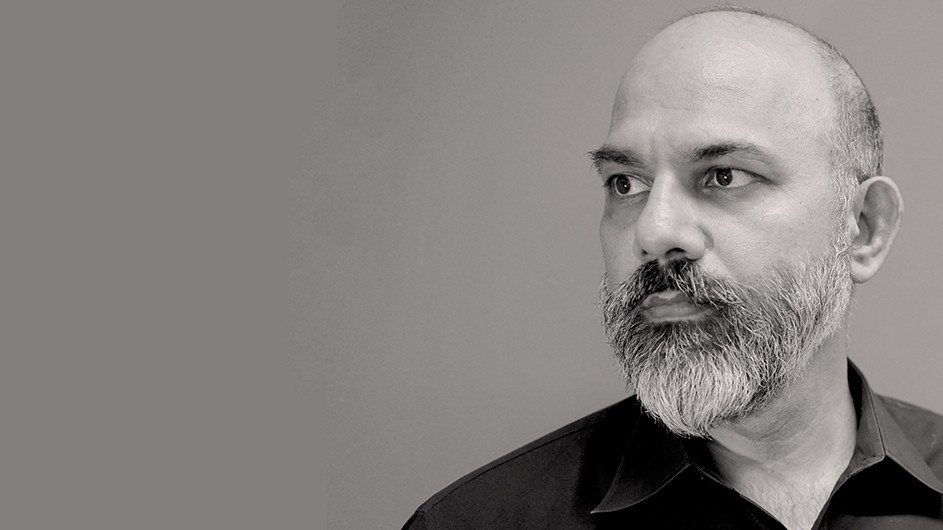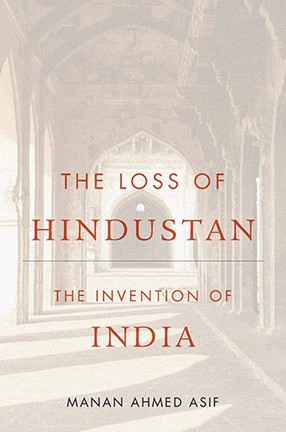An Alternative Identity for India
In a new book, Professor Manan Ahmed says that the subcontinent was once recognized as a more multicultural place than it is understood to be now.

Did South Asia have a shared regional identity prior to the arrival of Europeans in the late 15th century? In his new book, The Loss of Hindustan, History Professor Manan Ahmed argues that Pakistan, Bangladesh, and India share a common political ancestry: They are all part of a region whose people understand themselves as Hindustani. Ahmed describes the idea of Hindustan, as reflected in the work of native historians from roughly 1000 CE to 1900 CE, and how that idea disappeared.
Ahmed proposes that a European understanding of India as Hindu has replaced an earlier, native understanding of India as Hindustan, a home for all faiths. Turning to the subcontinent’s medieval past, he uncovers a rich network of historians of Hindustan who imagined, studied, and shaped their kings, cities, and societies. Ahmed closely examines the most complete idea of Hindustan, elaborated by the early-17th-century Deccan historian Firishta, whose work, Tarikh-i Firishta, became a major source for European philosophers and historians such as Voltaire, Kant, Hegel, and Gibbon during the 18th and 19th centuries. Yet Firishta’s notions of Hindustan were lost and replaced by a different idea of India that exists today.
Ahmed discusses his book with Columbia News, along with what he’s reading now, what he suggests others read to get through the pandemic winter, and who his dinner party guests would be.

Q. Why did you write this book?
A. The book is the result of my long engagement with the historiographic tradition of the subcontinent, which I began in graduate school. I have long been fascinated with the claim of prominent European philosophers of history that much of the rest of the world had no history of its own (China, Africa, India, etc). They were able to reject, under the guise of an “objective” discipline of history, the multifarious modes of historical thinking and writing. This capacity to reject came, certainly, from the power of European colonization and imperial domination. After my first book, A Book of Conquest, I decided to engage both the European claim at understanding history-writing in the colonies and the world of history writing that predated and persisted after the colonization of the Portuguese, Dutch, French, and English in the subcontinent. I see my new book very much as an effort to decolonize the philosophy of history or at least its central tenet (which is a dismissal of pre-colonial historiographies).
Q. How did India lose its medieval political identity as the home of all religions—Hindustan—and become today the land of the Hindus?
A. I trace this making of India through several steps in the book: from Hindustan to Mughal India, to Muhammadan India versus ancient India, to British India. It was during the British India period (1857-1947) that the logic of division and an argument for sole custody of a geography was made by V. D. Savarkar (a founding member of the fascist organization RSS). In the 1920s and ‘30s, he put forth the concept of Hindutva and an India where only natural-born Hindus could live and flourish. The making of this project, however, required great violence—military, political, legal, historiographic—enacted by the British colonizers onto the subcontinent. My book unravels some of this history, and highlights the role of the soldier-scribes who amassed the tools and sources to reshape the narrative of Hindustan.
Q. Do you think it's possible for the religiously partitioned subcontinent that exists now to return to a more welcoming multicultural India?
A. Almost every single prediction of our planetary future shows that by 2050, 300 million inhabitants of the subcontinent will be dispossessed and displaced from their current inhabitations. The rise of sea levels and the dropping of the water table will prompt mass migrations, and, predictably, water and resource wars. The future of the subcontinent has to encompass the idea that religion, or culture, has no provenance unless it can help us unite as human beings against the coming calamity of climate crisis.
Q. What books are on your nightstand?
A. I am currently reading Les and Tamara Payne’s The Dead are Arising: The Life of Malcolm X, James Baldwin’s Another Country, and The Selected Works of Audre Lorde.
Q. Any reading recommendations for the pandemic?
A. I recommend the work of my colleague Sam Roberts, Infectious Fear, and Amitav Ghosh’s The Great Derangement.
Q. What is your favorite reading spot?
A. My laptop.
Q. Do you read actual books or do you use an e-reader?
A. I try to read physical books when I can, but, day to day, the screen has become the most common interface.
Q. What are you teaching this term? How are you helping your students cope with online learning?
A. I am teaching Contemporary Civilization, part of the Core Curriculum, and my students have been incredible. Truly incredible. They have created an impressive, supportive community for each other, which helps me as a teacher to engage with them and the reading material. I am so very grateful to them.
Q. You're hosting a dinner party. Which three academics or scholars, dead or alive, would you invite and why?
A. My book is dedicated to my three teachers: Professor C. M. Naim, Professor Muzaffar Alam, and Professor Shahid Amin—two currently live in Chicago and one in Delhi. I would love to be able to get them all around my dinner table, and invite all of my peers and students, so we can collectively learn from them and their incredible scholarship.
Check out Books to learn more about publications by Columbia professors.